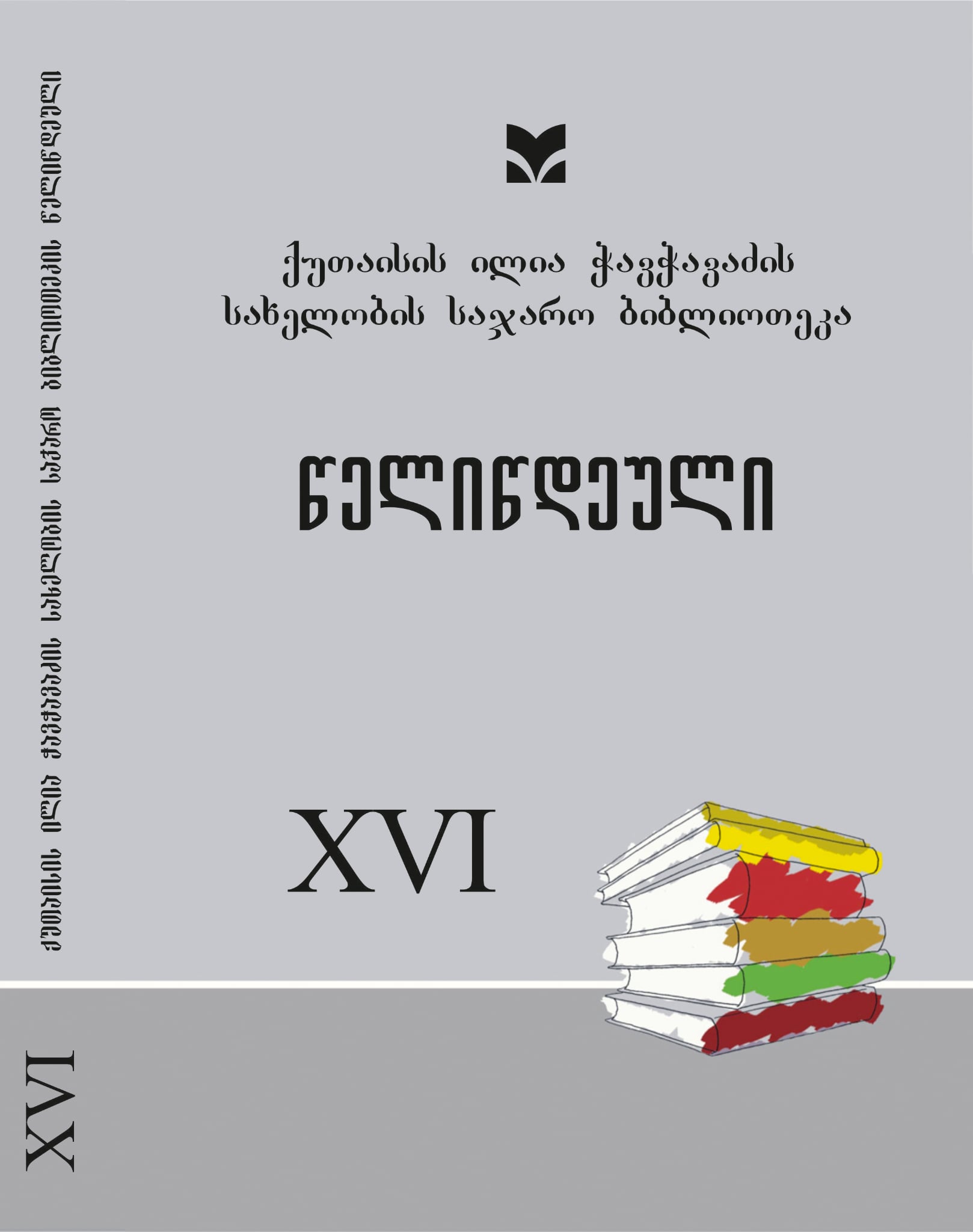The Georgian Emigrant Newspaper „Akhali Sakartvelo“ and the 1924 Uprising
DOI:
https://doi.org/10.61491/yk.16.2024.9393Keywords:
The 1924 uprising, the Georgian émigré press, the letters of Grigol VeshapeliAbstract
The defeat of the August 1924 uprising, which aimed to restore Georgia’s state independence, and the severe repressive policies implemented by the Soviet authorities in its aftermath had a significant impact on the national and political outlook of Georgian émigrés. Specifically, following the occupation of Georgia by Soviet Russia in February 1921, a small portion of émigrated Georgian politicians were compelled to adjust to the prevailing circumstances and to regard the country’s liberation from the Soviet Empire as an unattainable goal.
One particularly vivid example of this phenomenon is the radical metamorphosis in the political outlook of Grigol Veshapeli (real surname Veshapidze, 1891–1926) during the period leading up to the 1924 uprising. After emigrating following the Soviet occupation, he actively engaged in anti-Soviet propaganda. However, following the uprising’s defeat, he purposefully shifted to promoting the return of Georgian émigrés to Georgia and establishing cooperation with the Soviet authorities. To this end, he
extensively utilized the newspaper Akhal Sakartvelo, which he edited and which was published in Paris and Berlin.
The evident result of Veshapeli’s active collaboration with Soviet authorities is not only confirmed by the fact that Akhal Sakartvelo functioned as a periodical strongly promoting Soviet ideology (published 1924–1926 in Paris and Berlin) but also by its unrestricted circulation in Georgia. Consequently, Veshapeli—previously considered an active organizer in the struggle for Georgian independence—was branded by fellow émigrés as a Soviet-influenced agent.
This radical shift in Veshapeli’s national and political convictions is clearly evidenced by the numerous articles he and his associates published in the newspaper. Through these publications, the authors openly expressed their pro-Soviet stance and actively encouraged Georgian émigrés to return home and establish collaboration with the new authorities. As a natural consequence of Veshapeli’s radical transformation, tensions with other Georgian émigrés escalated, culminating in his assassination on
June 10, 1926.
The articles published in Akhal Sakartvelo can be divided into two main categories: first, contributions by émigré authors; and second, submissions from Georgia, whose authors sharply condemned the uprising, labeling it an adventurist endeavor, and demanded the harshest punishment for its organizers. Collectively, these writings provide a nuanced insight into the positions of specific Georgian émigrés—whether openly or covertly aligned with Soviet authorities—regarding the realities created in the aftermath of the 1924 uprising.




